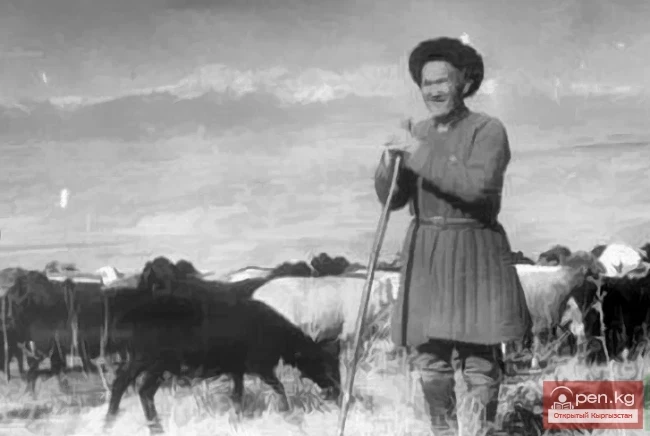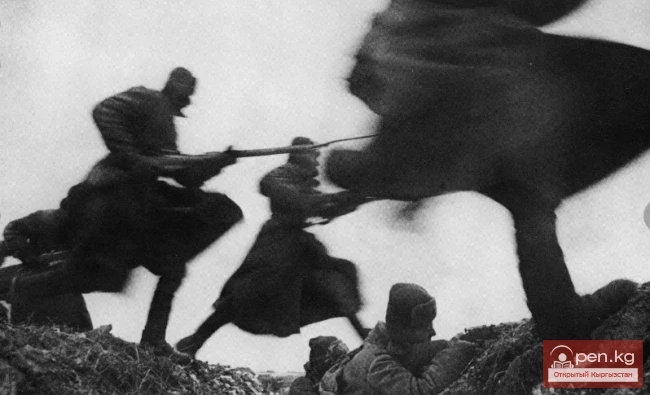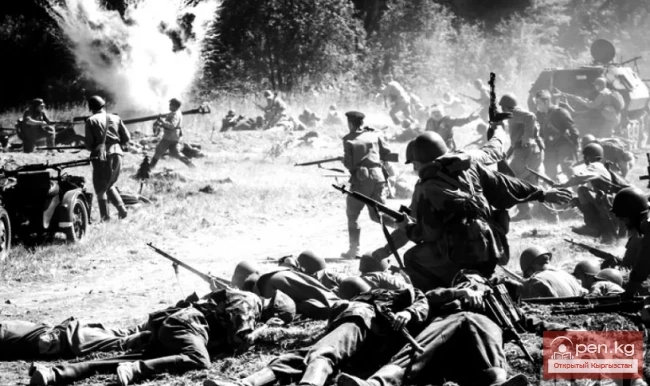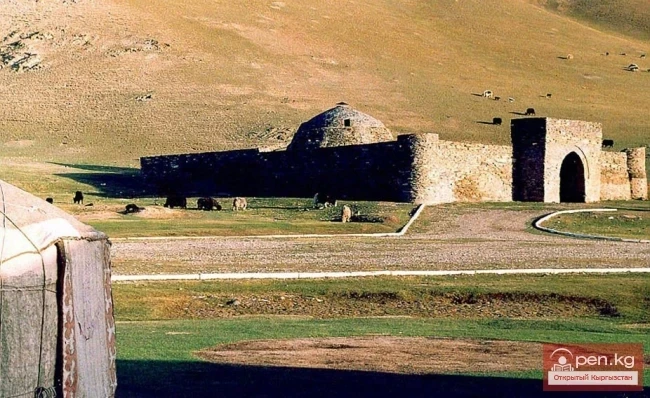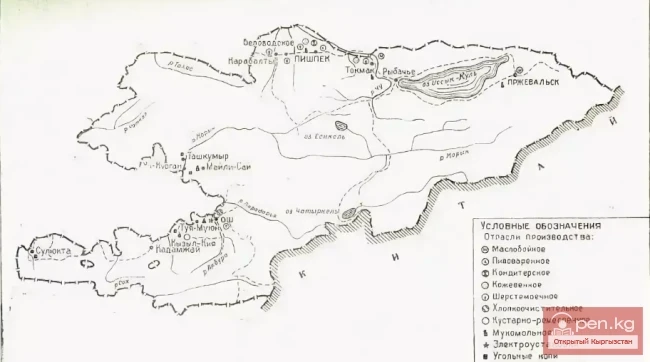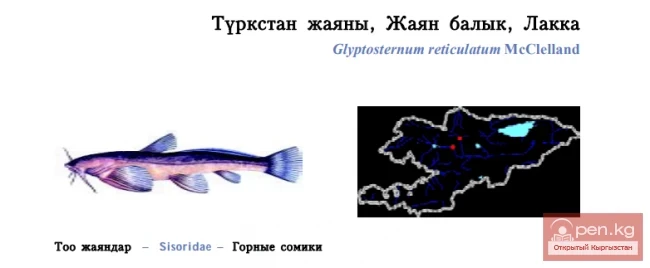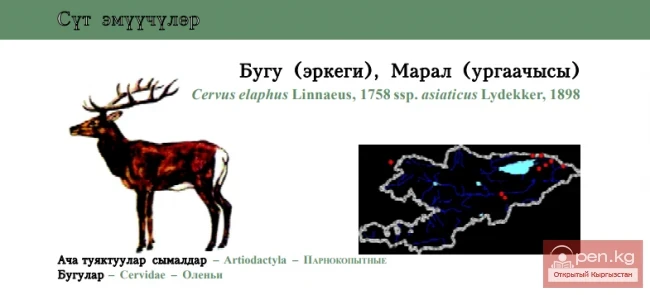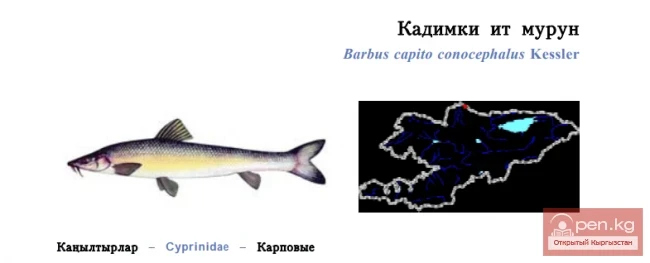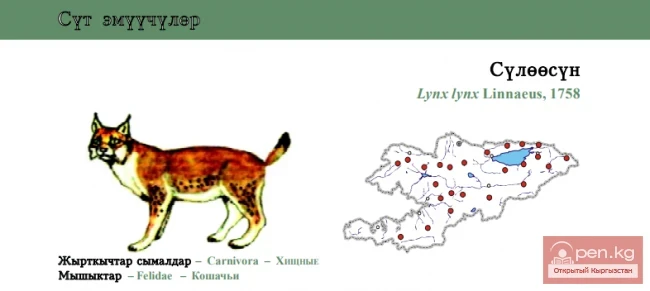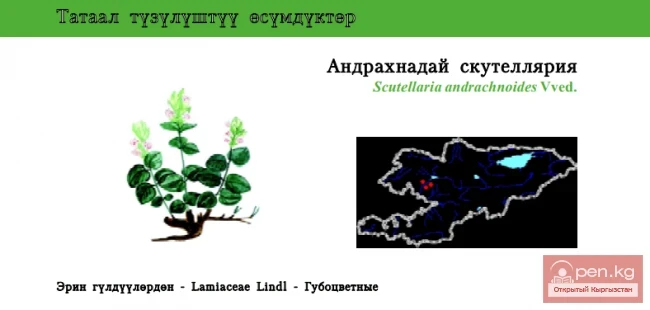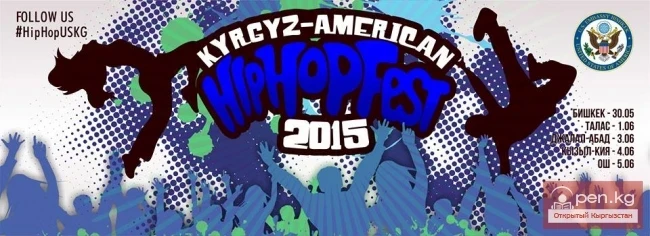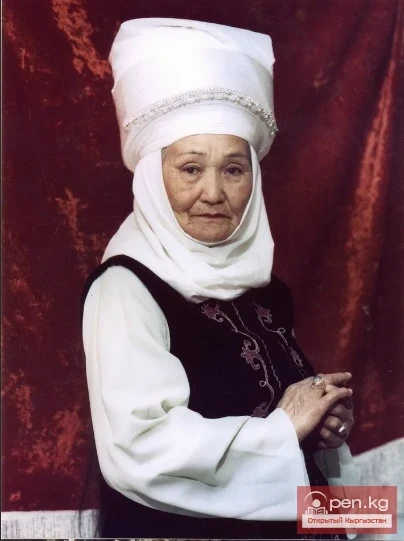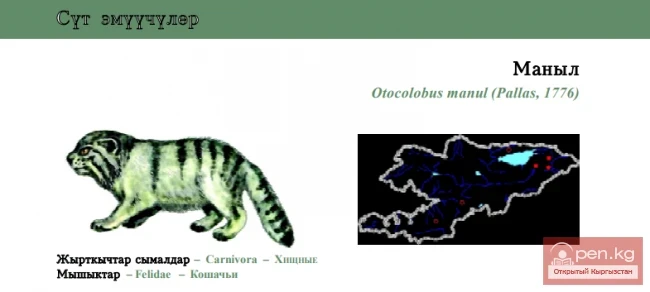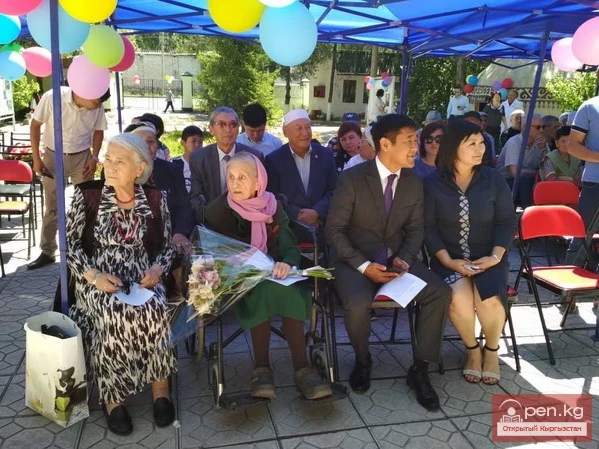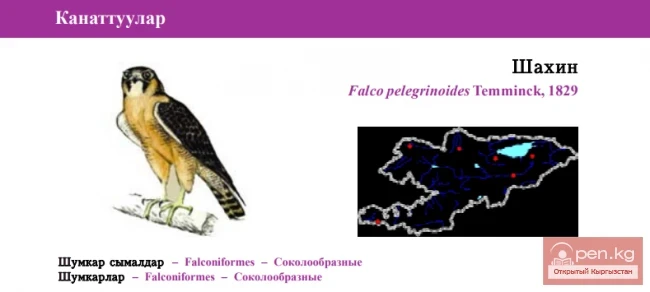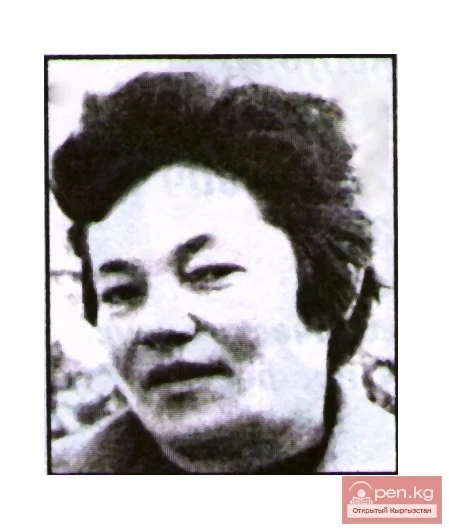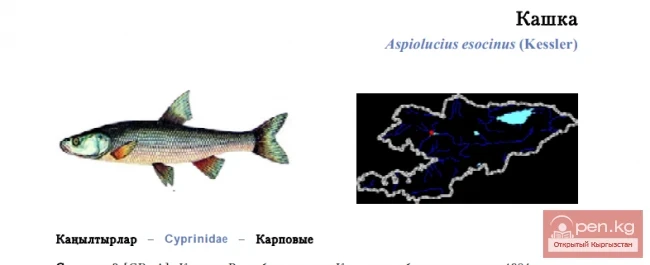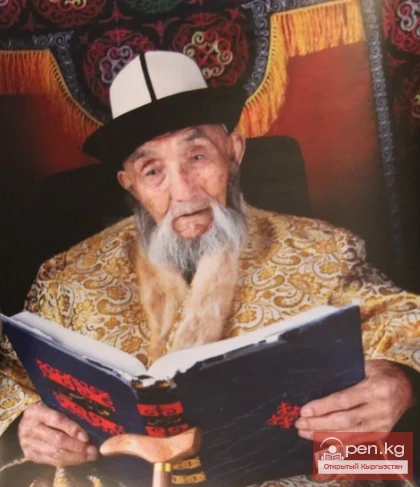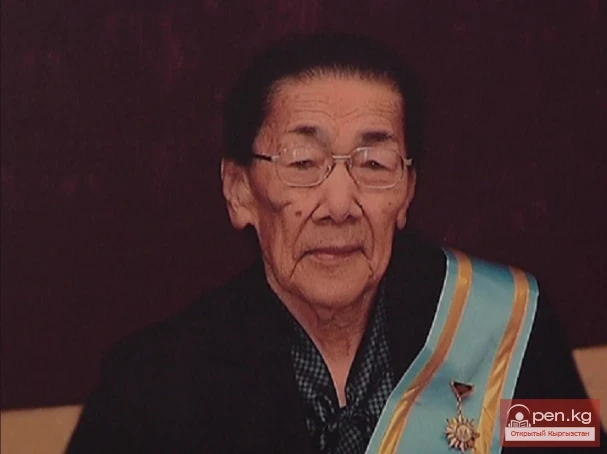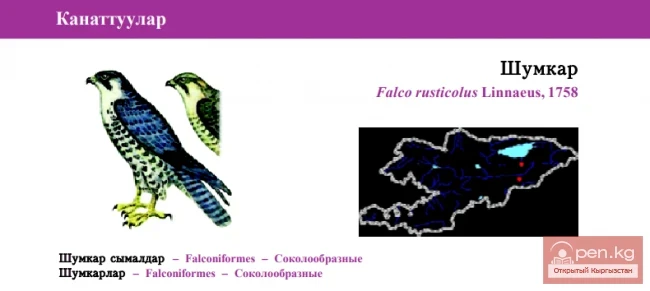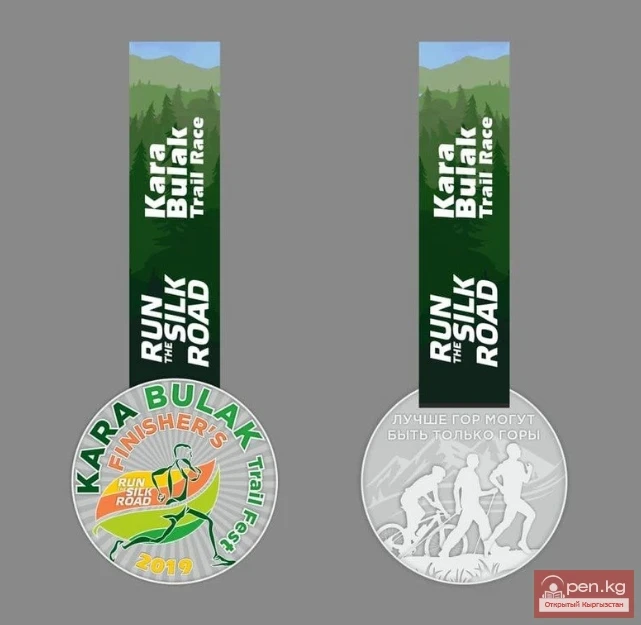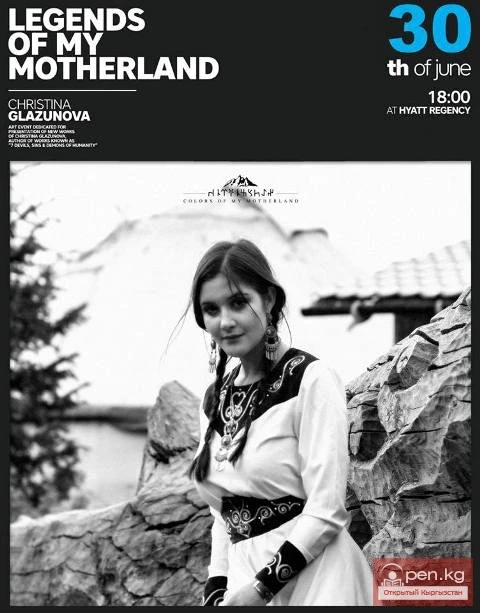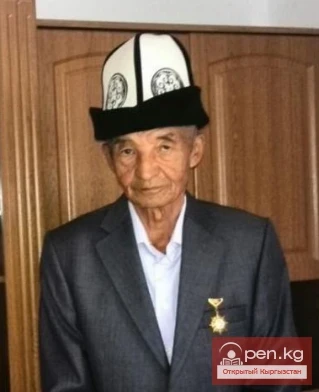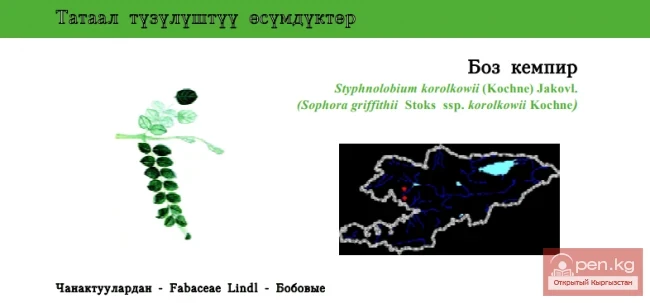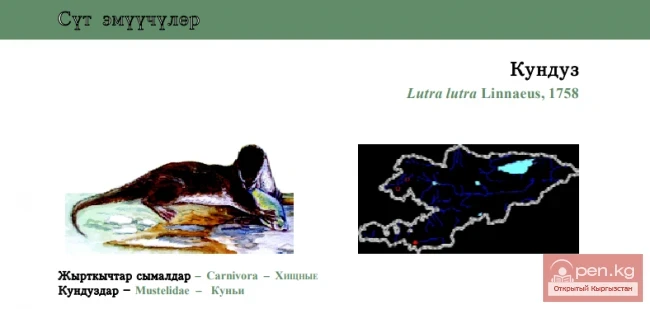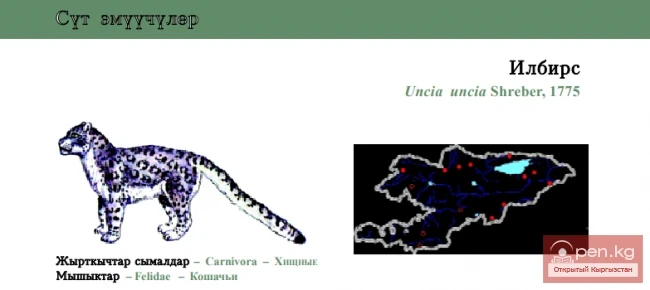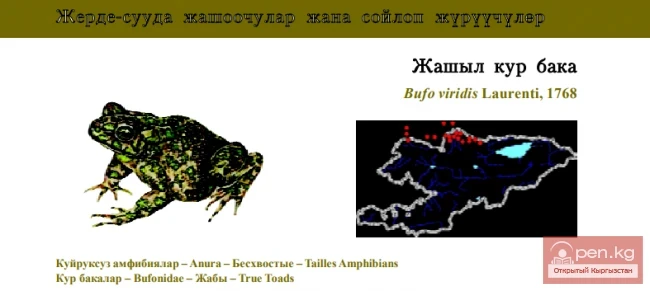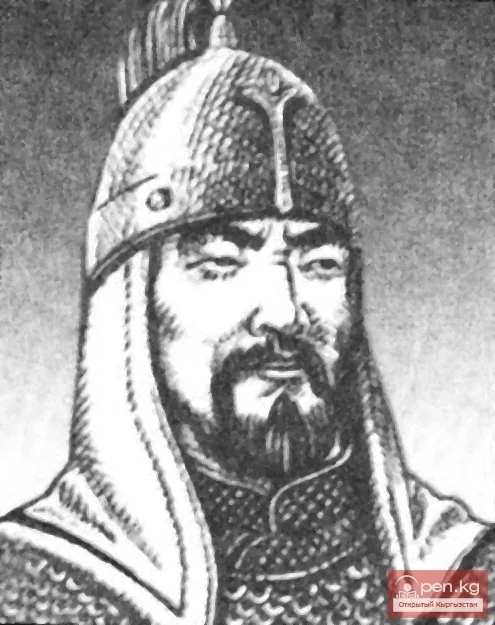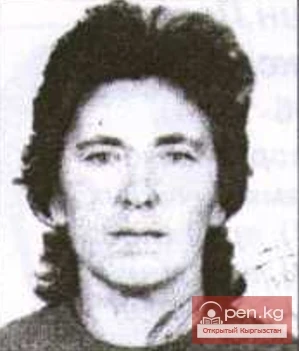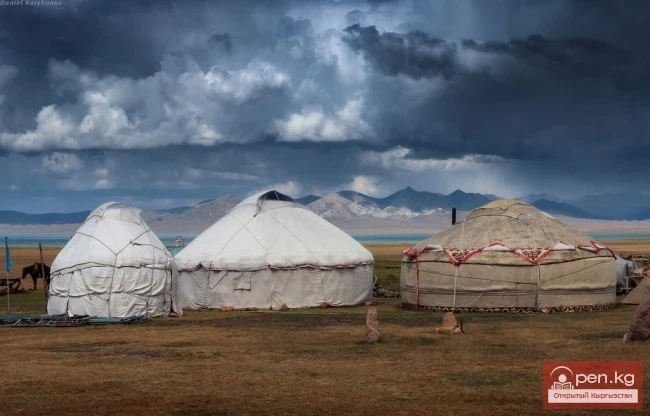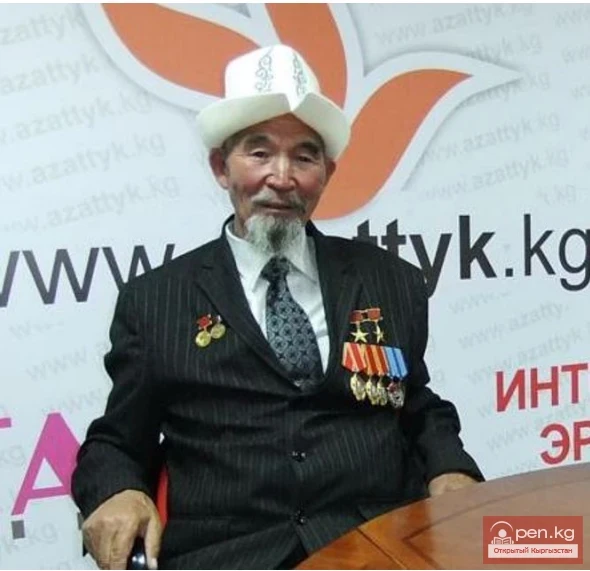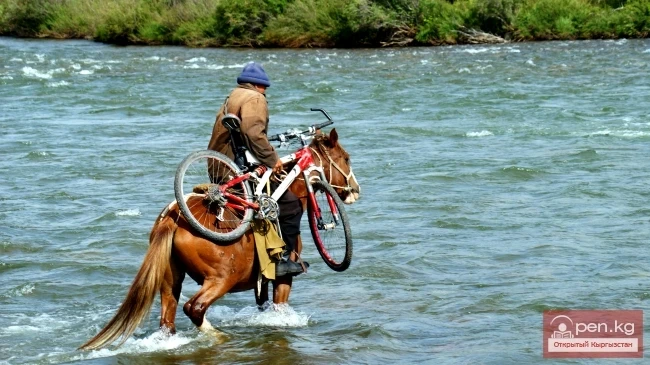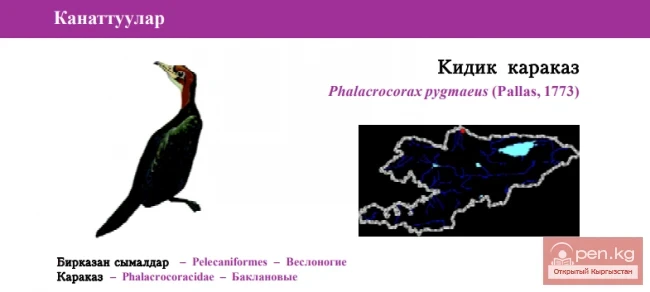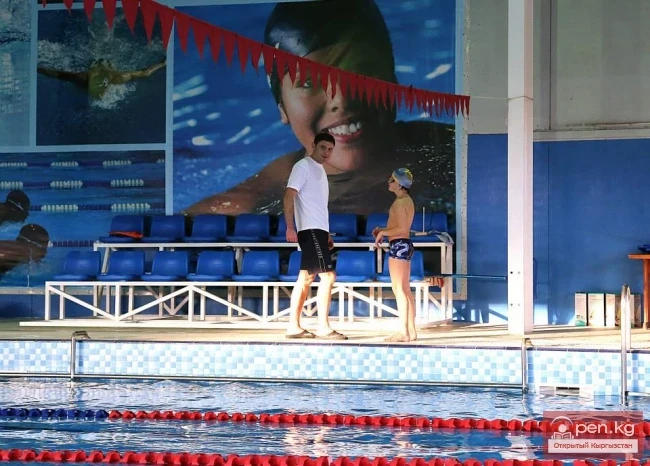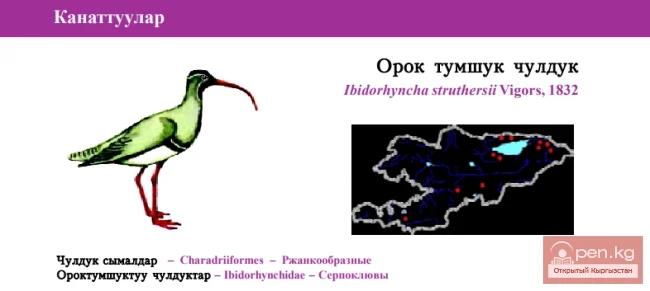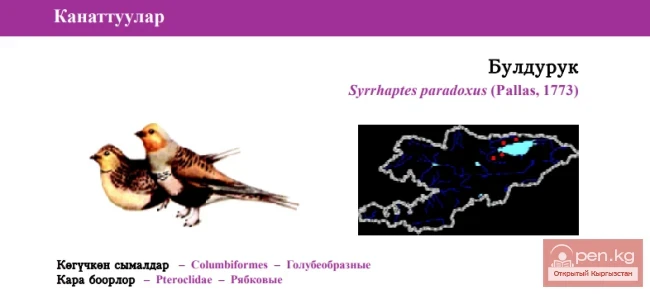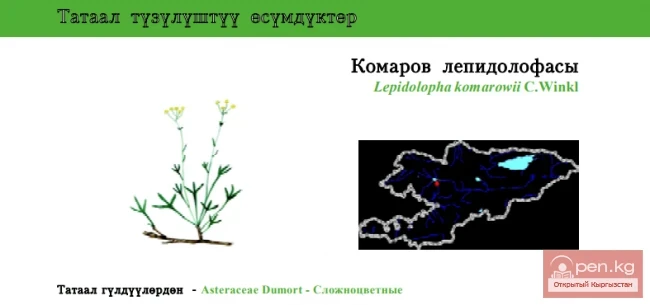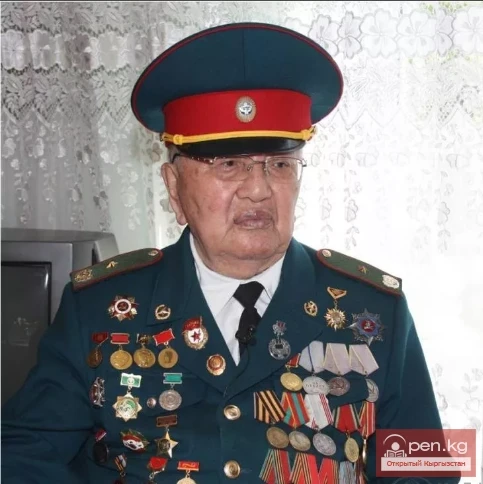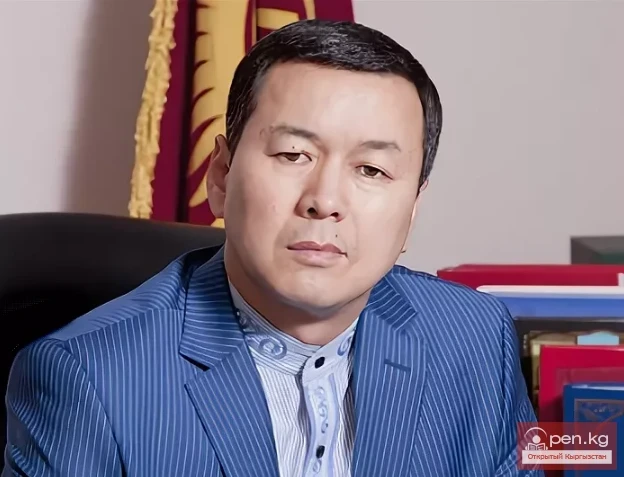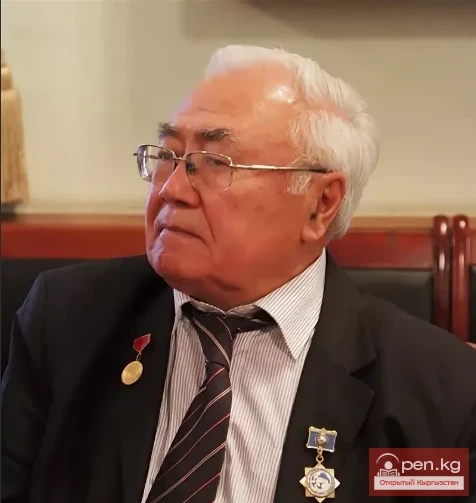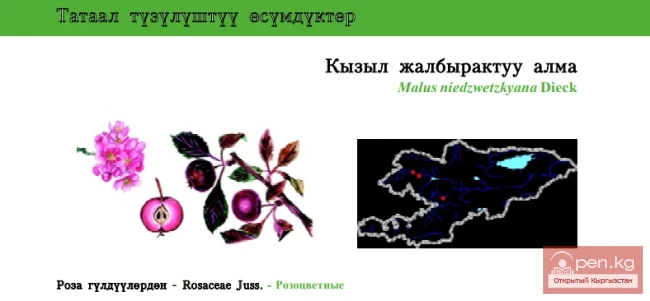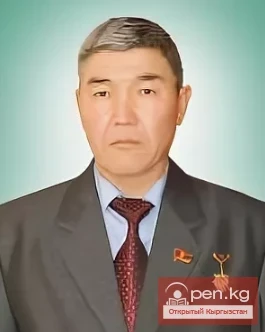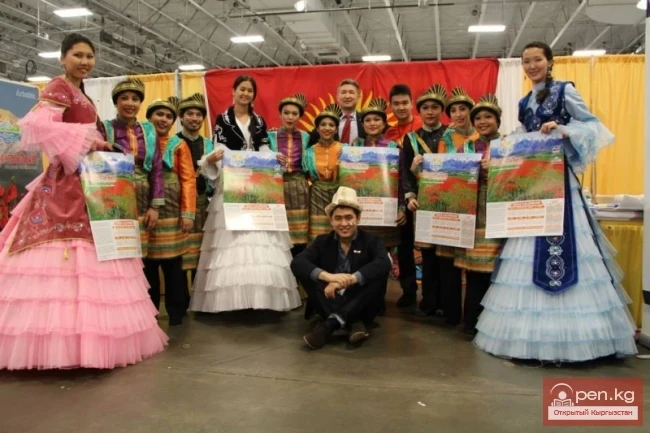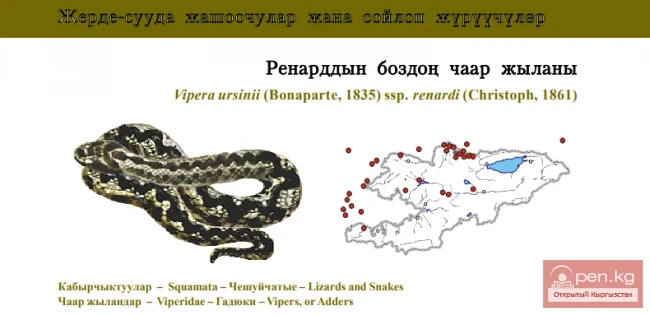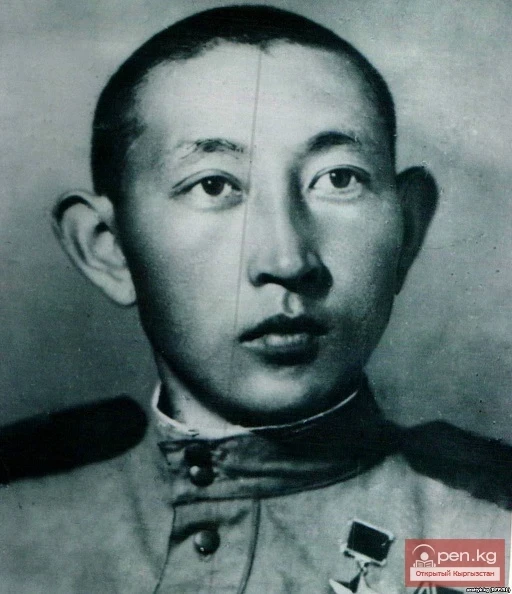
Hero of the Soviet Union Chortekov Anvarbek
Anvarbek Chortekov was born in 1920 in the village of Kara-Suu in the At-Bashinsky district of the Naryn region of the Kyrgyz SSR to a peasant family. He was Kyrgyz. Before being drafted into the army, he worked in a subsidiary farm and at a fruit and vegetable experimental station in the city of Naryn. In March 1943, he was drafted into the Soviet Army. He served as a sergeant, assistant commander of a rifle platoon. He fought as part of the Voronezh and 1st Ukrainian fronts.
In the battles for the Motherland, Anvarbek Chortekov proved himself to be a brave and courageous fighter. He displayed exceptional heroism and resilience during the crossing of the Dnieper River and in the battles for the settlements of Grigorievka and Lokhvitsy.
On January 10, 1944, for his exemplary performance of combat missions during the crossing of the Dnieper River, Anvarbek Chortekov was awarded the title of Hero of the Soviet Union. During subsequent combat operations, he was awarded the Order of the Red Star.
In 1947, the brave warrior was demobilized and returned to his native collective farm named after Kalinin in the At-Bashinsky district of the Naryn region.
COURAGE AND MASTERY
I first saw Anvarbek Chortekov at a school evening when I was in the sixth grade. I remember: the hall was packed. From behind the backs of tall high school students, we admired the "living" Hero, whose chest was adorned with numerous awards. He was a tall man with a broad, light face. Sitting firmly on a creaky chair, he spoke about the war. One of the students asked:
— Uncle, is war really like it is in the movies?
Anvarbek-ake, without looking at the student who asked the question, touched his forehead with his broad palm and looked out the window.
— No, my children, — he said. — How can it be like in the movies? War is war. May you never see it except in the movies!
Children of peaceful times are well aware of the hardships of war and know the evil it brings to people. But knowing about it is one thing, and experiencing it is quite another. Such experiences are never forgotten. Anvar-ake did not go into detail about the horrors of war. The restrained tone he adopted at the beginning of the conversation remained unbroken until the end. The hall was filled with such respectful silence that even the sighs of those sitting could be heard. Never in my childhood had I listened to such an exciting story or received such a strong impression.
Every boy has his favorite hero, found in movies or books he has seen or read.
After that meeting with Hero of the Soviet Union Anvarbek Chortekov, his image firmly imprinted in my imagination. And now, when the conversation turns to fearless heroes who move forward under a hail of bullets and lead others, I always remember the courageous face of Anvarbek-ake. What force drove him to heroism, where did that love for the Motherland, which permeated his flesh and blood, come from? And in general, what is heroism? Is it a person's character, their upbringing, or just chance? It would be naive to consider heroism a matter of chance. Although chance does not arise from nothing; it has its own reasons, origins, and necessities. Still, it seems that the main role here was played by the natural gifts of the person, their upbringing, and character.
Anvarbek Chortekov was born in 1920 in the village of Kara-Suu in the At-Bashinsky district. His parents were simple peasant livestock breeders. At the age of eight, he began studying at the Terek-Suu school. In terms of abilities, he did not stand out among his peers. What stood out was his tall stature and mature character for his age.
He completed six grades, which meant he finished school. To be honest, he had a bit of knowledge. In this regard, he could envy today's schoolchildren. But children of the 20s and 30s were relatively earlier introduced to work, immersing themselves in the thick of life. Thus, Anvarbek, with a six-year education, set out into the big world. No one in the village spoke of him as being young or inexperienced. On the contrary, they expressed admiration: “Look how strong the son of Chortek has become, a real jigit. May his life be long!”
At the age of fourteen, Anvarbek began working in the subsidiary farm. There was plenty of work to do. Irrigation, mowing, caring for livestock; in short, he had to work tirelessly, but it turned out that it was possible to keep up with everything everywhere. From a young age, Anvarbek had a wonderful character - calm and cheerful. Whether among peers in the aiyl, or in the subsidiary farm burdened with many worries, or later at the front, he never lost heart, did not shy away from difficulties, and did not lose his spirit and inherent cheerfulness. Later, after returning from the war, he often said: “Doing even simple work is a pleasure. War is a completely different matter, may it be cursed! In peacetime, one wants to work until the seventh sweat. Is there such a thing as bad work?!
During his work in the subsidiary farm, Anvarbek became closely acquainted with the life of Red Army soldiers. Who among the young men did not dream of learning to march in step and shoot accurately? Here, Anvarbek learned the basics of being a soldier. Who knows, perhaps these days played a significant role in his heroic fate.
In the year the Great Patriotic War began, Anvarbek Chortekov, who had some experience in agriculture, was appointed as an agronomist at the fruit and vegetable experimental station. At that time, in the mountainous region, the profession of agronomist was rare. For two years, he applied all his efforts and experience to grow high yields of vegetable crops in the harsh climatic conditions of the Tian Shan.
In 1941, Anvarbek Chortekov was drafted into the ranks of the Red Army and sent to a regimental school. Upon graduation, he was appointed as an assistant platoon commander in the 1129th rifle regiment of the 337th rifle division with the rank of sergeant.
War tests a person's character, revealing their inner potential. The very participation in the war contains a share of heroism. But on the front, this concept has its own interpretation. Only those who can combine courage with high military skill have the right to be called heroes.
Anvarbek did not immediately get used to life at the front and gain confidence. There were moments when fear made him clutch his head and plug his ears. Who wouldn’t be scared when everything around is rumbling and shaking? And every moment of your life could be your last. But there is nothing in the world that a person cannot get used to.
In the battles for the liberation of the Sumy region from fascist invaders, Anvarbek distinguished himself for the first time. In the area of Kosteleva, the platoon commander fell out of action, and Anvarbek Chortekov took command. They had to repel a tank attack from the enemy and go on the counteroffensive. The order was carried out. On the battlefield, smoking enemy tanks were left behind, and the pursuit of the fascists began. The soldiers of the platoon, led by Sergeant Chortekov, were the first to cross the Psel and Khoral rivers, setting an example of bravery. They then stormed the city of Lubny. During a break, they conducted a roll call. They found that several soldiers were missing. Such moments are the saddest in a soldier's life. The realization that a person with whom you just shared a meal from the same pot, dreamed of a peaceful future, is gone forever, pierces through your entire being with a burning pain.
Heroism is born from a chain of feats. The number of Anvarbek's feats grew. He was awarded the Order of the Red Star.
The day was not far off when he would perform his greatest feat.
In war, and indeed in military affairs, a commander bears special responsibility. He must not only know how to fight himself but also possess the ability to lead others and teach them military skills. Chortekov was a good commander. He led his soldiers not only by words and orders but also by his personal example.
On the night of September 24, 1943, the 1129th rifle regiment, using boats collected from the peasants, crossed the Dnieper River near the village of Zarubintsy. Sergeant Chortekov was one of the first to reach the right bank of the river. In the battles on the bridgehead, near the villages of Grigorievka and Lukovitsy, he replaced the platoon commander who had fallen out of action and, commanding the unit, held the positions they had taken. In battles, he was always at the front of the platoon.
Sergeant Chortekov and his platoon advanced, captured a height, and held it until the company arrived.
Thanks to his actions, the battalion was able to occupy advantageous positions. During the battle, the platoon fighters destroyed up to 30 Nazis, 3 of whom were personally eliminated by Sergeant Chortekov. On October 2, he was wounded but did not leave the battlefield until the combat mission was completed.
By the decree of the Presidium of the Supreme Soviet of the USSR dated January 10, 1944, for exemplary performance of combat missions from the command in the fight against the German invaders and for the courage and heroism displayed during this, Sergeant Chortekov Anvarbek was awarded the title of Hero of the Soviet Union, with the Order of Lenin and the medal "Gold Star."
In 1944, he was sent to study at the Ulyanovsk Tank School, which he graduated from in 1945. In 1947, Junior Lieutenant Chortekov was discharged to the reserve.
He returned to his homeland. A member of the Communist Party of the Soviet Union since 1951. He worked as a hydraulic engineer in the collective farm in his homeland. He lived in the village of Kara-Suu. He died on April 29, 1989.
He was awarded the Orders of Lenin (01.10.1944), the Order of the Patriotic War 1st class (03.11.1985), and medals.
